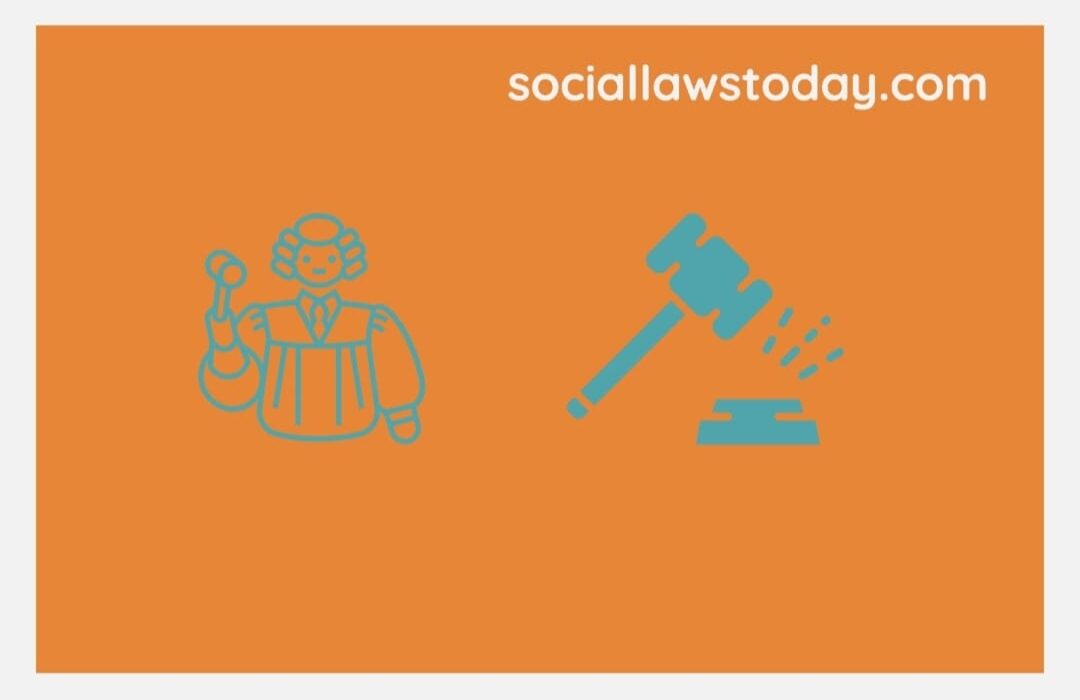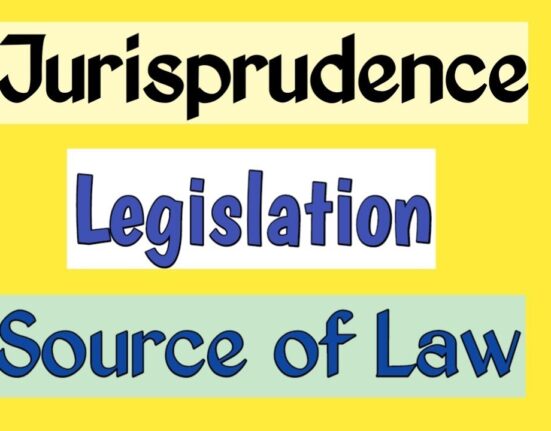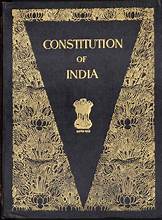Sanchit Gupta, a 3rd-Year student, from Chandigarh University, has written this Article “Concept of rights and duties in Jurisprudence”.
Introduction
Rights and duties are interrelated because where there are rights, there are duties, and people are given rights to protect them and fulfill their duties to the state. Duties and rights go hand in hand. It is not wrong to say that both twins grew up from one root. Both concepts of rights and duties have been thoroughly discussed in the law. Rights in the general sense mean different things, but they are usually understood as the standard of actions allowed in a given area.
As a legal term, it refers to the standard of conduct permitted by law. Such permitted action by the people is called their legal right. Duty is also an action. Duty is a service to others. A person is responsible for a country and a man. It acts against unfair laws. These are the main duties enforced by the law. Moreover, If the duty is not properly performed, it will constitute an offense under the law.
Rights
It means that actions permitted by law are called legal rights, or actions recognized or protected by the state are called legal rights. The definition is given by many lawyers, such as Holland, Austin, Pollock, etc.
According to Salmond, a legal right is an “interest that is protected and recognized by the rule of law. It is an interest that has its duty and disregard of which is wrong”.
As per Austin, right is personnel that lives in a determinate party or parties by virtue of a given law and which profits against a party or parties (or answers to an obligation lying on a party or parties) other than the party or parties in whom it lives. As indicated by him, an individual can be said to have a privilege when another or others are bound or obliged by law to accomplish something or hold back something concerning him. It implies that a right has consistently a related duty.
In the case of the State of Rajasthan versus the Union of India, the Supreme Court expressed that “legal rights in the exact sense are correlatives of legitimate duties, and lawful rights are characterized as the interests whom the law ensures by forcing duties on different people. In any case, the lawful right in the exacting sense implies that right is the insusceptibility to the legal power of another. Immunity is not subject to any means.
Rights Guaranteed under the Constitution of India
The Constitution of India has ensured certain rights to the residents of India, known as fundamental rights, which are viewed as the main rights. Furthermore,On the off chance that these rights are disregarded, the individual has the option to move to the Supreme Court of India or the High Court of any state for enforcement of these rights.
The fundamental rights guaranteed by the Constitution of India are:
- Article 14: Right to Equality
- Article 19: Right to Freedom
- Article 21: Right to life
- Article 23 and 24: Right against Exploitation
- Article 25: Right to Freedom of Religion
- Article 32: Right to Constitutional Remedies
Elements of legal rights
All legal issues and practices revolve around the rights and duties of individuals and authorities. Despite the existence of moral rights, all rights in our time are legal. According to Salmond, all legal rights include the following elements:
- Person of Inheritance or Subject of right object:
This is the person who owns the right. This is the subject of the law. Such people are called persons of inheritance. Even if the property is bequeathed to the unborn child, even if it is not safe, the unborn child still owns the property.
- Person of incidence or Subject of Duty:
Another person has a responsibility to respect and recognize the rights of other people. That person has a legal duty and is called a person of incidence.
- The content or subject matter of the legal right:
The object of a legal right is an essential element. Moreover, This is a legal issue; it refers to doing something or not doing certain actions or indulgences; it forces a person to abstain from voting or to act on behalf of a person with legal rights. For Example: Y purchased a van for 20,000 rupees. Here, Y is the subject of the right Subject (Y) has legal rights and can exclude others.
- Objects of legal rights:
Objects of rights are things or objects over which legal rights are exercised. Example: A bought a car at a price of 100,000 rupees, and the car here is an object.
- Legal right title:
Title is the process of transferring or transferring rights to an individual. These are certain events whose previous owners have obtained their rights, such as through purchases, gifts, or wills.
Classification of Rights in Jurisprudence
Right in rem and Right in persona:
Right in Rem is a right that is available to the entire society. However, Right in persona refers to the rights that individuals can use. An example of a breach of contract: If a breach of contract occurs, the party initiating the lawsuit will bring a lawsuit against the party concerned. Rights in persona are temporary and can also become rights in rem. Right in rem is permanent.
Positive and negative rights:
A positive right is a right when an action must be carried out by a person who has the corresponding responsibility. The person in charge must take positive action. Negative rights are the right to prevent you from taking certain actions. Negative rights correspond to negative responsibilities. The person on whom this duty is imposed is deprived of the opportunity to perform certain actions.
Personal rights and proprietary rights:
Personal rights are rights that respect the owners of the right. These have no economic value and are related to them i.e., Personal wealth or well-being. For example, the right to dignity, and the right to freedom of speech. Proprietary right is granted to the owner of the property. These rights are rights with a certain currency or economic value and are estates of a person. For example patent rights, land rights, debts, etc.
Perfect and imperfect rights:
Perfect rights are protected and recognized by law, and infringers can be sued. Example: B borrows a loan from A and he needs to repay the loan, and A has the right to demand the loan amount. If B fails to pay, A has the right to file a lawsuit. Incomplete rights refer to rights that are not recognized or protected by law. Example: If the loan expires, you can claim the money, but you cannot execute it.
Principal and Accessory Rights: According to law, the principal right is the most important. This is a basic right granted to people. Accessory rights are indirect rights or security rights. They are not important, but they are considered to be a fundamental right.
Right in Re-aliens and Right in Re-propria:
The rights in Re-aliena are available rights against the property of others. One example is the right to an easement. This is the result of inheriting the concept of Jurisprudence from rulers and ministers. Moreover, The right in the Re-propriais the right related to one’s own property, and this right leads to absolute ownership of the property. This is the result of the legal concept of ownership.
Corporal and Incorporeal rights:
Both rights are protected by law. Corporal rights are rights over tangible objects or material objects. These rights refer to the rights over objects that can be seen or touched. Incorporeal rights are rights to objects that cannot be seen or touched. Example: the right to reputation.
Legal and equitable rights: legal rights are protected by common law (i.e., English courts). Common law depends on habit and custom. Equitable rights are protected by the equity court or the court of chancellor. The basic principles are natural justice, equity, fairness, and a Clean conscience.
Primary and Sanctioning Rights:
Primary right is very important, and it is also a very basic right. These rights are independent in nature and have a Binding force. They are right in rem. For example, the right of reputation. If these rights are violated in this situation, the person can go to court. This right is protected by law and takes the form of compensation, fines, or imprisonment.
Public and Private Rights:
Public rights is the right enforced by the state. For example, voting rights, travel rights, etc. Private rights are exercised for personal benefit. Examples: the right to sleep, and the right to drink water.
Vested and Contingent Rights:
Vested rights are rights granted to someone from the beginning. There is no need to do anything to grant someone these rights. It depends on the current situation. Contingent rights are rights granted to individuals on the occurrence or nonoccurrence of certain actions. This right depends on future actions. When a prescribed act occurs, only then the person is granted these rights.
Duties
As birds are made to fly and rivers to run, so is the soul made to follow duty. – Ramayana
Duty, the word, finds its derivation from the word due,” which means something that is owed. So, duty can be described as an obligation to perform an act or a task. Moreover, This act or task can be ethical, moral, cultural, etc. in nature or a compulsion by the state, omission of which will result in punishment by law. A person is responsible for a country and a man. It acts against unfair laws. These are the main duties enforced by the law. However, If the duty is not properly performed, it will constitute an offense under the law. The kinds of duties consist of moral and legal duties. The classification of duties includes primary and secondary duty, positive and negative duty, and absolute and relative duty, such as protecting and maintaining the environment. Moreover, Cleanliness is a person’s responsibility to the country.
According to Salmond, “A duty is an obligatory act; it is the opposite of which would be wrong. Duties and wrongs are correlatives. Supporting this, Fitzgerald has said, The commission of wrong is a breach of duty, and the performance of duty is the avoidance of wrong”.
Characteristics of duties
A duty is a responsibility to be fulfilled. It is a guideline, a prescription to be followed, that details the conduct that must be followed when fulfilling duties that are moral or social in nature. Professor Fuller states the main attributes of duty as follows:
- It should be general, though limited exceptions are permissible.
- It should be promulgated.
- It should be prospective and intelligible.
- It must be consistent.
- It should be capable of fulfillment and compatible with inner morality.
Duties under the Constitution of India
Article 51-A of the Constitution of India guarantees certain duties to all Indian citizens. Article 51-A of the Constitution of India stipulates that all Indian citizens must abide by the provisions of the Constitution and respect the national flag and the national anthem.
- To safeguard the sovereignty and integrity of India
- To follow the noble ideals of a national struggle
- To defend the country and contribute to national service when called
- To preserve the national heritage of the country
- To preserve the national heritage of the country
- To promote and maintain the harmony of brotherhood among the people of India
- To protect the dignity of women
- To protect the natural habitat, including forests, lakes, rivers, and wildlife
- To protect public property and to avoid violence
- To contribute to the development of the nation in all spheres
Classification of Duties
Moral duty and legal duty:
Legal duties are opposite to legal rights and are recognized by the law in the administration of justice. Moral duty is the opposite of moral right. Although it is not recognized by law, it is implemented in accordance with established norms and social values.
Fundamental duties and legal duties:
Fundamental duties are obligations imposed on citizens in accordance with their country and the constitution, while legal duties are obligations imposed by laws and regulations.
Positive duty and negative duty:
When the law forces us to take a certain action, it is called a positive duty, and when the law forces us not to take a certain action, it is called a negative duty.
Primary duty and secondary duty:
Primary duty is an independent duty and an absolute duty independent of other duties, while secondary duty is a duty that is not independent of other duties and is the result of a violation of a duty.
Antecedent duty and remedial duty:
The duty that exists independently of another duty is the antecedent duty, and the duties arising from the infringement of rights constitute the remedial duties.
Duty in rem and duty in personam:
The Duty in rem is the duty with respect to ownership of property, while duty in personam is the duty with respect to human dignity and transitional rights.
Duty in repropria and duty in realiena:
The duty in repropria means an absolute duty to own property, while the duty in realiena means the duty of partial property.
Corporeal duty and incorporeal duty:
Corporal duties are duties over physical property, while incorporeal duties are duties for non-physical properties like intellectual property rights.
Absolute duties and relative duties:
Absolute duties are not corresponding and are not relative, while relative duties are related to each other and correspond with a man’s duty, which is interdependent.
Correlation between the Concept of Rights and Duties in Jurisprudence
Rights and duties have a close relationship, and both are inseparable and exist side by side. One can say that right and duty are two sides of the same coin. If a legal system gives the right to life to its citizens, it also imposes an obligation on them to not expose their lives to trouble as well as to respect the lives and convenience of others. Thus, a strong legal system shall consist of legal rights and legal duties, like its two non-separable parts.
- According to Salmond, “No right can exist without any corresponding duty, and vice versa. He believed that every duty that is being performed has a correlated right attached to it”.
- Austin has to say that all the types of duties are not similar and are divided between relative and absolute duties. Relative duties are the ones that have corresponding rights, whereas absolute duties are the ones that are independent and have no rights correlated to them. For example, not harming your life is one of your absolute duties; there is no corresponding right here.
Conclusion
We can conclude that rights and duties coexist. In the words of Salmond, it can be said that no right exists without a corresponding duty. Every duty of the person must be a duty towards some person in whom the right is vested, and conversely, every right must be against some person upon whom a duty is imposed. Therefore, the concept of rights and duties occupies an important position in all legal systems in the world. Without rights and duties, citizens can only exist as animals. However, The mere granting of rights and duties is of no use if they do not have the support of the rule of law; this is the only legal protection that can be enforced in court.
However, In modern times, the concept and scope of rights and duties have continued to expand, and even non-human rights are important and recognized. Various trends are seen in the practice and application of these rights and duties. The courts have adapted to the changing needs of society.
Also Read: Extradition under International Law
Concept of Rights and Duties in Jurisprudence by Sanchit Gupta
References:
- Bare Act
- https://indiankanoon.org/
- https://www.legalserviceindia.com/legal/article-1919-rights-and-duties-in-the-light-of-jurisprudence-an-overview.html
- https://legalvidhiya.com/legal-rights-and-duties/







Leave feedback about this